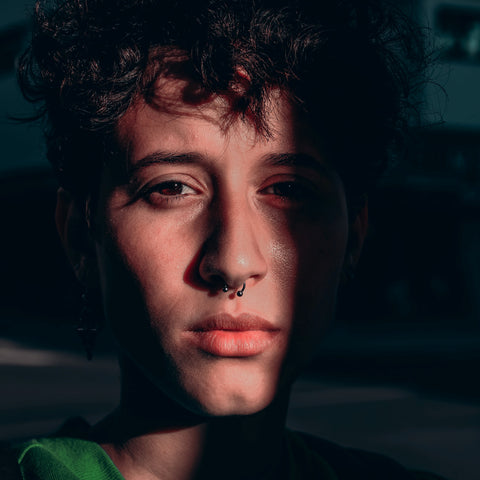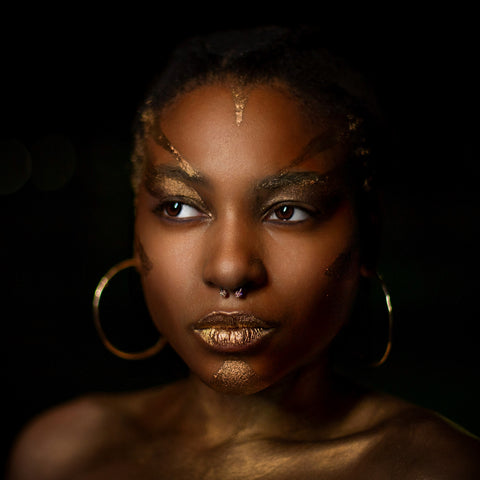If you’ve found your way to this article, chances are you’re dealing with an itchy piercing. Whether you’ve had your piercing for a short time or several years, experiencing itchiness can bring about various concerns and questions. “Is my piercing infected?” “Am I experiencing rejection?” “Should my piercing be itchy after all this time?” Itchy piercings can have multiple causes, both positive and negative.
Table of Contents
ToggleYour Piercing Is Healing
Believe it or not, an itchy piercing can actually be a good sign. Itchiness usually indicates that your healing process is progressing properly. Remember, a piercing is essentially a puncture wound. When the needle passes through your body, it causes trauma to the surrounding tissue. Your body then goes to work healing that trauma, resulting in a fully healed piercing. During this healing process, your body may exhibit unique reactions to combat what it perceives as a “foreign invader,” leading to the sensation of itchiness. However, it’s crucial to avoid scratching your piercing at all costs. The delicate cells within your piercing can be easily damaged, disrupting the healing process and leading to more itching in the future.
Factors Affecting Healing
Taking care of your piercing is essential for proper healing. Cartilage piercings, such as industrials, tragus, and nostril piercings, require extra attention and care. Good piercing aftercare practices are crucial during the healing process. Using a sterile saline spray once a day will help keep the area surrounding your piercing clean from dirt, debris, and bacteria. Avoid scrubbing, rubbing, or tugging at the piercing area, as this can cause additional itching and potential damage. Let the saline spray do its job. It’s also important to avoid using soaps, shampoos, or other chemicals on your piercing, as these can be harsh and have negative effects. Stick to saline solution and warm water during your shower until your piercing has fully healed. Additional stress can also contribute to itchiness, so be mindful of any headwear or sleeping positions that may put pressure on your jewelry.
Material Sensitivities
Everyone’s body is unique, and some individuals may experience sensitivity to certain jewelry materials. Even 14k gold can cause reactions in some people. If you notice that your body isn’t reacting well to a particular piece of jewelry, consider trying a more biocompatible material. Titanium body jewelry is recommended for individuals sensitive to metals. Titanium is one of the most inert metals, making it an excellent choice for body piercings. For those who prefer non-metal options, Bioplast body jewelry is an alternative worth considering. Originally developed for medical purposes, Bioplast is flexible, sterilizable, and extremely comfortable.
Piercing Bumps or Keloids
Even with the best intentions, accidents can happen that cause irritation to your piercing. Carelessly removing clothing or drying your head with a towel can lead to unexpected snags. This can result in discomfort and potentially itching. In some cases, a piercing bump, also known as a hypertrophic scar, may develop. These small, fleshy, fluid-filled bumps are stubborn and unsightly but usually harmless. The best approach is to leave them alone and maintain your once-a-day saline spray routine to promote healing and reduce swelling. Keloids, however, are a different issue. Composed of hard, angry scar tissue, keloids can also cause itching. Removing keloids requires professional assistance from a doctor.
Infection/Rejection
If your piercing appears normal but is accompanied by itchiness, it is likely experiencing normal healing side effects. However, it’s important to be aware of the signs of infection or rejection. Aside from the initial symptoms that occur directly after the piercing (such as swelling and slight pain), watch out for the following symptoms:
- Extra redness
- Chapped or flaking skin around the piercing site
- Unpleasant odor from the piercing
- Yellow/green discharge or pus
- Changes in jewelry positioning
- Altered physical appearance of the piercing site
- Sharp pain
Don’t Hesitate to Seek Help or Advice
The information presented here provides a starting point for dealing with an itchy piercing. If you suspect anything beyond normal healing itchiness, it’s essential to contact your professional piercer or a medical professional. Seeking advice from a professional is critical for the long-term health of your piercing and yourself. Make an appointment as soon as possible to ensure proper care.
Frequently Asked Questions
{Q} How long does it take for a piercing to heal?
{A} Healing time varies depending on the type of piercing. On average, it can take anywhere from a few weeks to several months for a piercing to fully heal.
{Q} Can I use alcohol to clean my piercing?
{A} No, it is not recommended to use alcohol to clean your piercing. Alcohol can be too harsh and cause irritation. Stick to saline solution and warm water for cleaning purposes.
{Q} Can I change my jewelry while my piercing is still healing?
{A} It is best to wait until your piercing has completely healed before changing your jewelry. Changing it too soon can disrupt the healing process and potentially cause complications.
{Q} What should I do if my piercing is infected?
{A} If you suspect your piercing is infected, it is crucial to seek professional help. A piercer or healthcare provider can assess the situation and provide appropriate treatment.
{Q} How can I prevent keloids from forming on my piercing?
{A} To prevent keloid formation, it is important to handle your piercing with care and avoid any unnecessary trauma. Follow proper aftercare instructions and avoid touching or irritating the piercing unnecessarily.
Conclusion
Experiencing itchiness with your piercing can be concerning, but it is often a normal part of the healing process. By practicing good aftercare, using biocompatible materials, and seeking professional help when needed, you can alleviate symptoms and ensure the health and longevity of your piercing. Remember, if in doubt, consult a professional. Happy healing!











